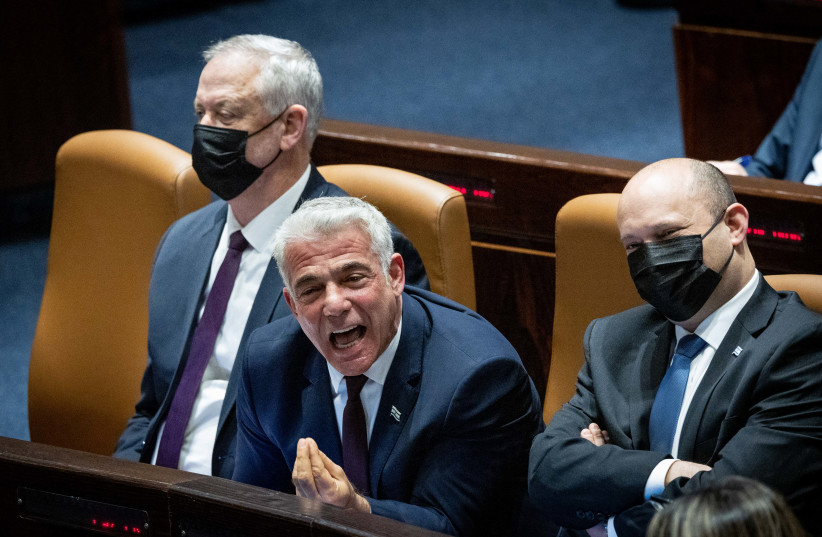Foreign Minister Yair Lapid took a stand against the authorization of West Bank outposts and the language that presents them as legal entities, when he spoke to his Yesh Atid faction in the Knesset on Monday.
The Right has pushed to brand the outposts as “young settlements” in the process of authorization, as opposed to illegal construction that must be removed.
A journalist asked Lapid at the meeting if he supported hooking up the “young settlements” to the electricity grid, particularly in light of the winter weather and given that young children live in these communities.
“I recognize this whitewashed term,” he said. “These are not young settlements, these are illegal outposts.”
Israelis, however, do “live there and the government has a responsibility,” Lapid said.

It was “an interesting question as to whether one should have children there, but that is a matter for their parents.”
The Young Settlements’ Forum that represents those outposts put a positive spin on his words.
“Minister Lapid, call us what you will; outposts, shoes or hotdogs. It’s all good. We welcome your recognition of the State of Israel’s obligation to the residents of the young outposts. It’s an important and significant step,” it said.
“Everyone agrees that we have to be connected to electricity. So why delay and allow children to continue to freeze in the cold?”
Israel Beytenu Party leader and Finance Minister Avigdor Liberman, who himself lives in the Nokdim settlement, spoke about both the importance of respecting the law and supporting the young settlements.
“This government is doing everything to connect the young settlements and the outposts to electricity,” he said. “Everything that can be done is being done.”
Justice Minister Gideon Sa’ar said that many of the outposts had never been hooked up to the electricity grid.
“This has been the situation for over 20 years,” he explained.
A number of ministries were working to resolve the situation and “I hope that we will be able to advance the issue,” Sa’ar said.
Last week The Jerusalem Post reported that the Defense Ministry was considering a plan that would allow illegal settler and Palestinian homes in Area C of the West Bank to be connected to the electricity grid.
Former prime minister Benjamin Netanyahu had blocked attempts to legalize the outposts en mass during his 12-year tenure.
There are about 100 outposts in Area C of the West Bank, which is under both IDF military and civilian control.
The Right blamed Defense Minister Benny Gantz for halting an initiative during Netanyahu’s last term to declare the government’s intent to legalize about 70 of the outposts.
Gil Hoffman contributed to this report.
